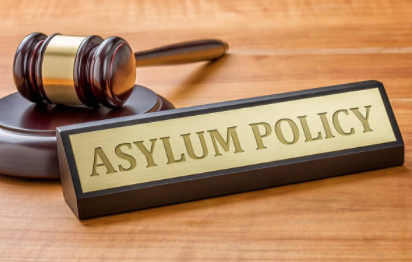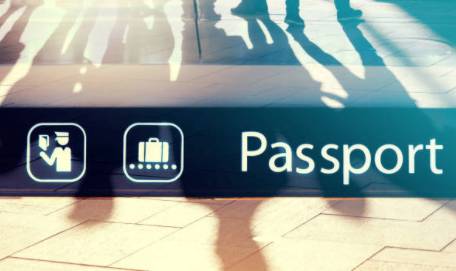What is asylum?
The right to request asylum is a human right, under which persons fearing persecution by their country of origin may be protected by another sovereign country or authority.
The terms “refugee” and “asylum-seeker” are used to describe persons who are on the move, who have left their countries and have crossed borders. These terms are often used interchangeably but it is important to distinguish between them as there is a legal difference.
An asylum-seeker is a person who has left their country and is seeking protection from persecution and serious human rights violations in another country, but whose claim hasn’t yet been legally recognized and is waiting to receive a decision on his protection request. Seeking asylum is a human right. This means everyone should be allowed to enter another country to seek asylum but approval thereof is dependent on the country’s adaptations to its definition.
A refugee is an asylum seeker who has finished the process of his protection request and has been officially granted protection and an asylum status in the host country. Refugees have a right to international protection.
The asylum process defines who a refugee is and sets the requirements and rights of individuals who are granted asylum, and the responsibilities of the nations that grant asylum.
How does it happen?

Article 14 of the 1948 Universal Declaration of Human rights recognizes the right of persons to seek asylum from persecution in other countries. The Refugee convention of 1951 and the annexed protocol of New York of 1967 provide the legal basis and procedural standards for requesting and granting asylum. Aruba is a party to these conventions. It must be noted that even though regional adaptations of the original (refugee) convention standards are available in different parts of the world, the regional adaptations are not applicable in Aruba.
State parties to the convention have the obligation to provide the legal standards and the procedural standards for asylum applications in accordance with the convention principles. The right to adjudicate and provide protection to a person requesting asylum falls under the responsibility of the corresponding State party to the convention. In countries where the
convention is not applicable, a UN-based organization may provide this adjudication and protection process.
A person should not be charged or requested to make payment for their asylum application. Applying for asylum is free. If you are asked to make a payment at any time during the process, please report the situation to the Department of Integration, Management and Admission of Foreigners (DIMAS for its acronym in Papiamento) via its website www.dimasaruba.aw (e-helpdesk/klachten)
Registration:
A person arriving at the border or any official port of entry (e.g. airport) in Aruba, can apply for asylum at the migration official by completing a form in the desired language. If a person is already on the island, one can apply for asylum at the Department of Integration, Management and Admission of Foreigners(DIMAS) by scheduling an appointment online via the website www.dimasaruba.aw It is also possible to apply for asylum pending deportation provided that it was not possible or necessary to apply for asylum before being issued a deportation order. This request can be done in a deportation center.
Processing:
The processing of an asylum application is not based on a fixed model but is done in accordance with the standard of a due process which includes the procedural guarantees for a speedy and efficient process. Additionally, there is the possibility that an applicant can be processed according to a fixed processing time. This fixed process can be applied to border applications based on the “Schiphol model”. Border applications based on the “Schiphol model” have a fixed processing time. This time encompasses 28 days and during this period delayed official entry into Aruba is applied while an initial claim investigation is executed. In the event that the “Schiphol model” is applied, the authorities can appoint a designated place to stay to the asylum-seeker while their request is being processed. After these 28 days, a decision is made on the application or the asylum seeker will be admitted to the country pending a further determination of their asylum claim.
Decision-making:
If the asylum seeker is granted refugee status, they are granted protection on the island.
If the request is denied, the migrant can be asked to leave the country. In the event a person who has been denied asylum has not left the country within the established term, an additional deportation order may be issued.
why does it happen?
Any foreign national or stateless person at a border point or within the territory of Aruba may apply for asylum, regardless of age, sex, gender, nationality, race, religion, political opinion or any other distinguishing factor.
The refugee convention describes a number of protected grounds based on which one can be granted protection, mainly race, religion, nationality, political opinion or membership in a particular social group.
If they fear returning to their country of origin because of a well-founded fear of persecution based on a protected ground as described in the refugee convention, they may qualify for asylum.
The term economic migrant is often confused with the term refugee, however, economic migrants leave their regions primarily due to harsh economic conditions, rather than fear of persecution based on a protected ground as described in the refugee convention.
who is involved

DIMAS: The Department of Integration, Management and Admission of Foreigners (DIMAS for its acronym in Papiamento) is the governmental department in charge of receiving official applications for protection (asylum) in Aruba. DIMAS is also the department responsible for reviewing and making decisions regarding the asylum application.
An asylum application is exclusively processed via an official registration form. DIMAS only considers official asylum requests that have followed the registrations guidelines and that are filed via the national registration form.
DIIMAS is located at Paardenbaaistraat 11, Oranjestad, Aruba Telephone: +297 522 1500 Website: https://www.dimasaruba.aw, available in different languages.
